 by our College Data Analytics Team
by our College Data Analytics TeamWe've pulled together some essential information you should know about the program, including how many students graduate each year, the ethnic diversity of these students, average starting salaries, and more. Also, learn how Rutgers New Brunswick ranks among other schools offering degrees in economics.
Jump to any of the following sections:
The bachelor's program at Rutgers New Brunswick was ranked #65 on College Factual's Best Schools for economics list. It is also ranked #2 in New Jersey.
| Ranking Type | Rank |
|---|---|
| Best Economics Master’s Degree Schools | 60 |
| Best Economics Bachelor’s Degree Schools | 61 |
| Best Economics Schools | 65 |
| Best Economics Graduate Degree Schools | 66 |
During the 2021-2022 academic year, Rutgers University - New Brunswick handed out 262 bachelor's degrees in economics. This is a decrease of 32% over the previous year when 387 degrees were handed out.
In 2022, 11 students received their master’s degree in economics from Rutgers New Brunswick. This makes it the #107 most popular school for economics master’s degree candidates in the country.
In addition, 6 students received their doctoral degrees in economics in 2022, making the school the #67 most popular school in the United States for this category of students.
The median salary of economics students who receive their bachelor's degree at Rutgers New Brunswick is $51,848. This is great news for graduates of the program, since this figure is higher than the national average of $51,722 for all economics bachelor's degree recipients.
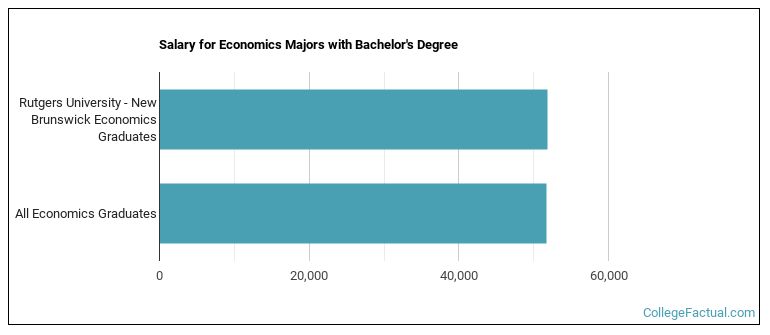
While getting their bachelor's degree at Rutgers New Brunswick, economics students borrow a median amount of $39,133 in student loans. This is not too bad considering that the median debt load of all economics bachelor's degree recipients across the country is $39,273.
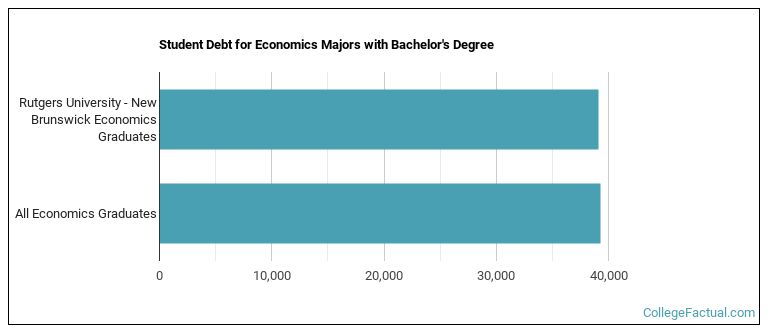
The typical student loan payment of a bachelor's degree student from the economics program at Rutgers New Brunswick is $357 per month.
During the 2022-2023 academic year, part-time undergraduate students at Rutgers New Brunswick paid an average of $1,054 per credit hour if they came to the school from out-of-state. In-state students paid a discounted rate of $441 per credit hour. The following table shows the average full-time tuition and fees for undergraduates.
| In State | Out of State | |
|---|---|---|
| Tuition | $13,674 | $32,436 |
| Fees | $3,565 | $3,565 |
| Books and Supplies | $1,391 | $1,391 |
| On Campus Room and Board | $14,715 | $14,715 |
| On Campus Other Expenses | $4,372 | $4,372 |
Learn more about Rutgers New Brunswick tuition and fees.
During the 2021-2022 academic year, 262 economics majors earned their bachelor's degree from Rutgers New Brunswick. Of these graduates, 71% were men and 29% were women.
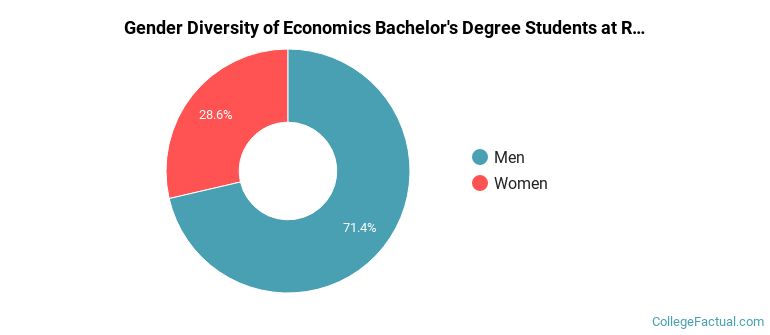
The following table and chart show the ethnic background for students who recently graduated from Rutgers University - New Brunswick with a bachelor's in economics.
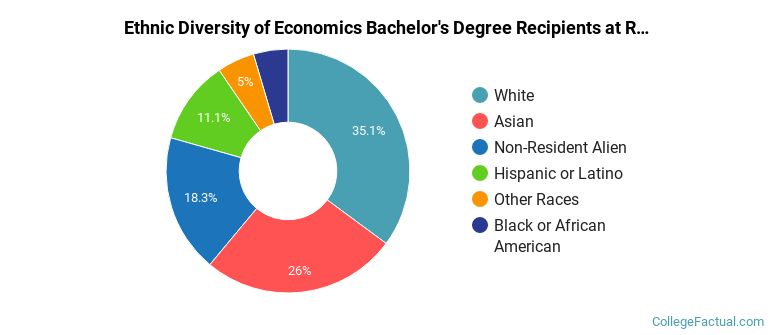
| Ethnic Background | Number of Students |
|---|---|
| Asian | 68 |
| Black or African American | 12 |
| Hispanic or Latino | 29 |
| White | 92 |
| Non-Resident Aliens | 48 |
| Other Races | 13 |
Online degrees for the Rutgers New Brunswick economics bachelor’s degree program are not available at this time. To see if the school offers distance learning options in other areas, visit the Rutgers New Brunswick Online Learning page.
The economics program at Rutgers New Brunswick awarded 6 master's degrees in 2021-2022. About 67% of these degrees went to men with the other 33% going to women.
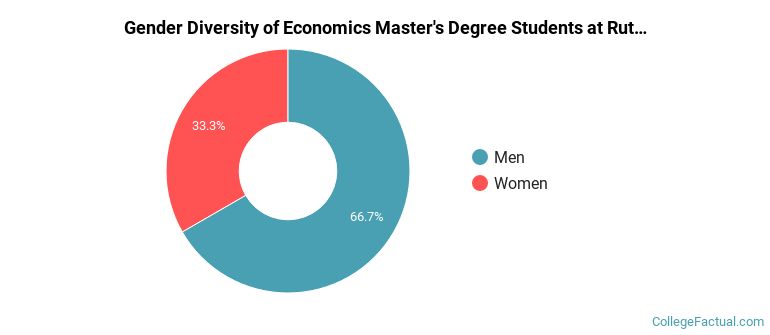
The following table and chart show the ethnic background for students who recently graduated from Rutgers University - New Brunswick with a master's in economics.
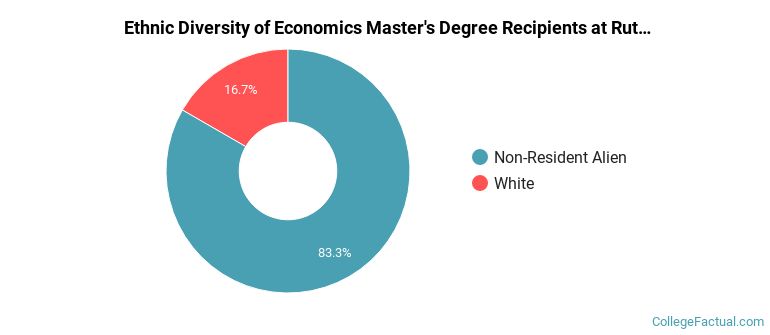
| Ethnic Background | Number of Students |
|---|---|
| Asian | 0 |
| Black or African American | 0 |
| Hispanic or Latino | 0 |
| White | 1 |
| Non-Resident Aliens | 5 |
| Other Races | 0 |
Take a look at the following statistics related to the make-up of the economics majors at Rutgers University - New Brunswick.
| Related Major | Annual Graduates |
|---|---|
| Political Science & Government | 227 |
| Sociology | 47 |
| Other Social Sciences | 41 |
| Geography & Cartography | 18 |
| Anthropology | 13 |
More about our data sources and methodologies.